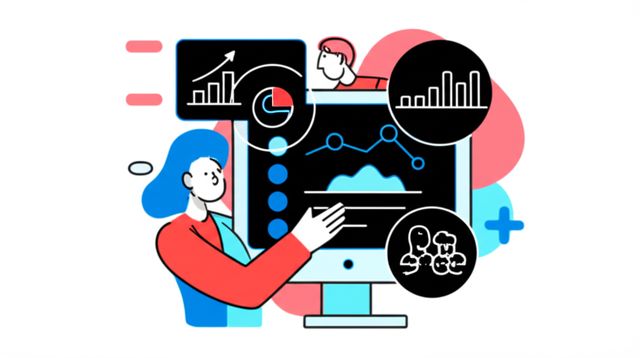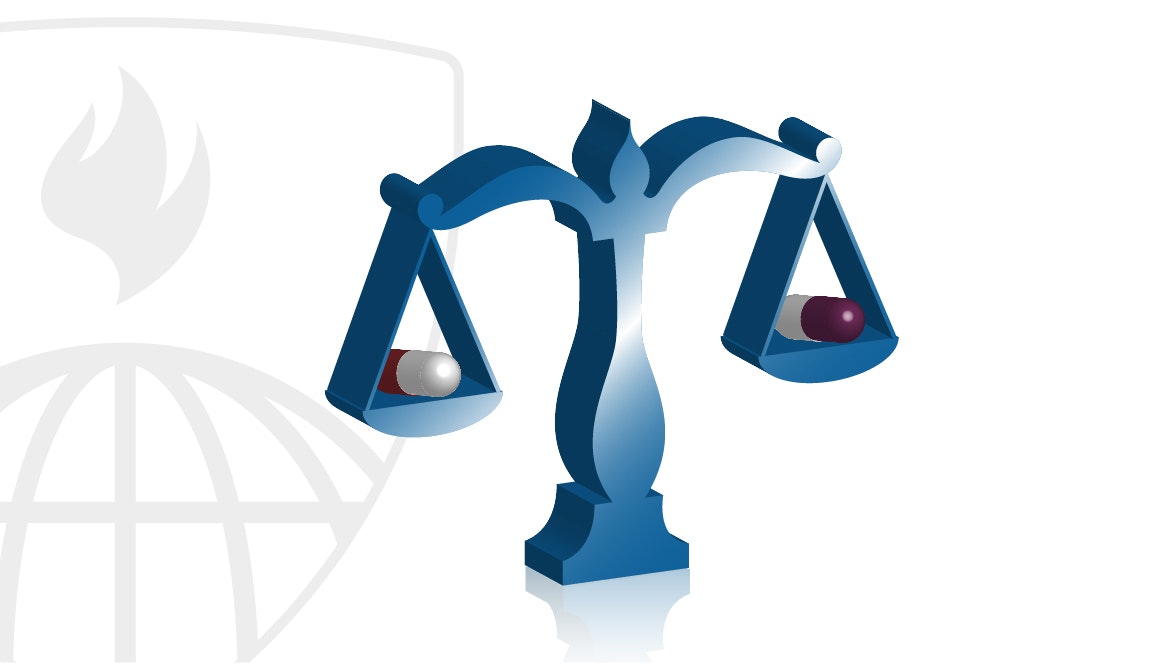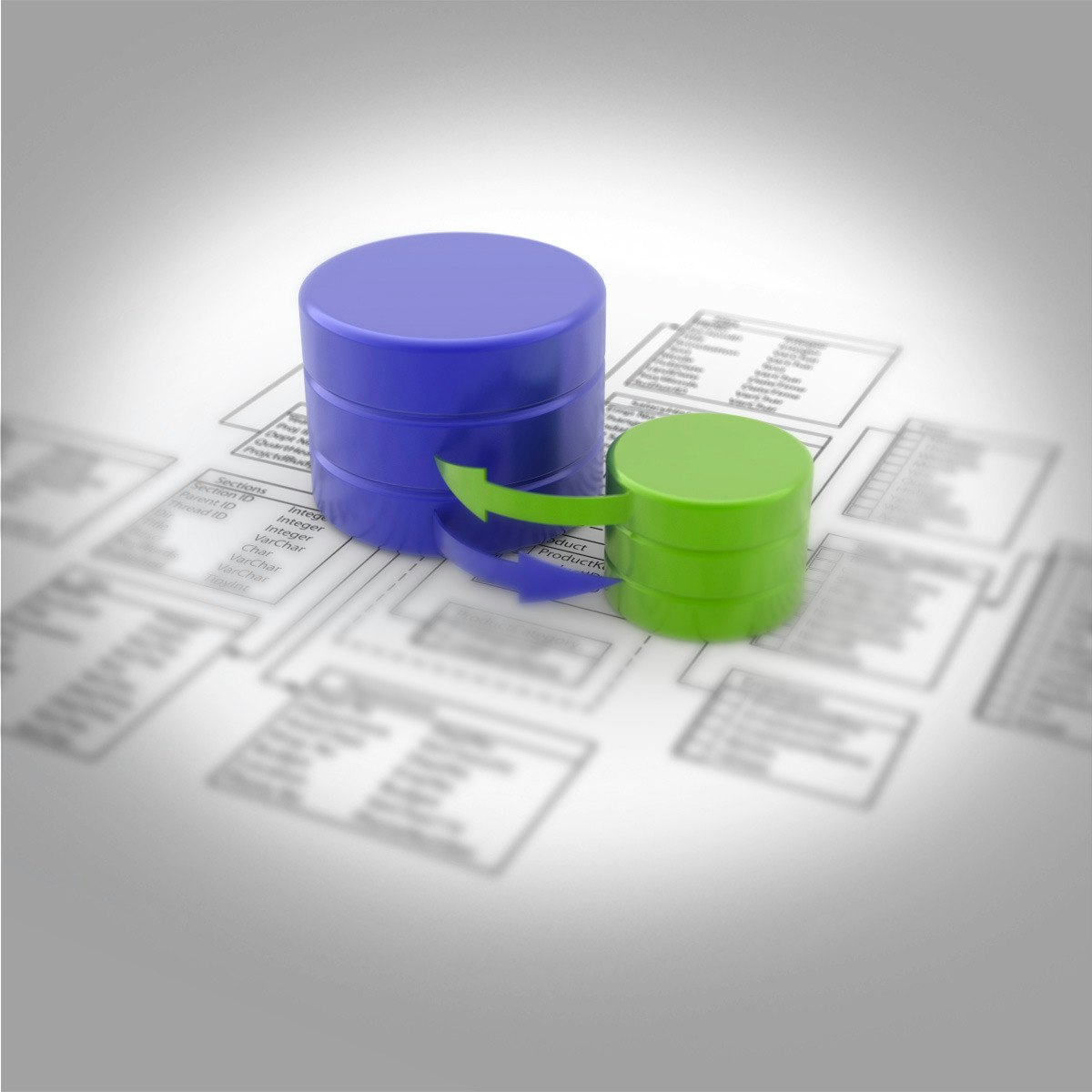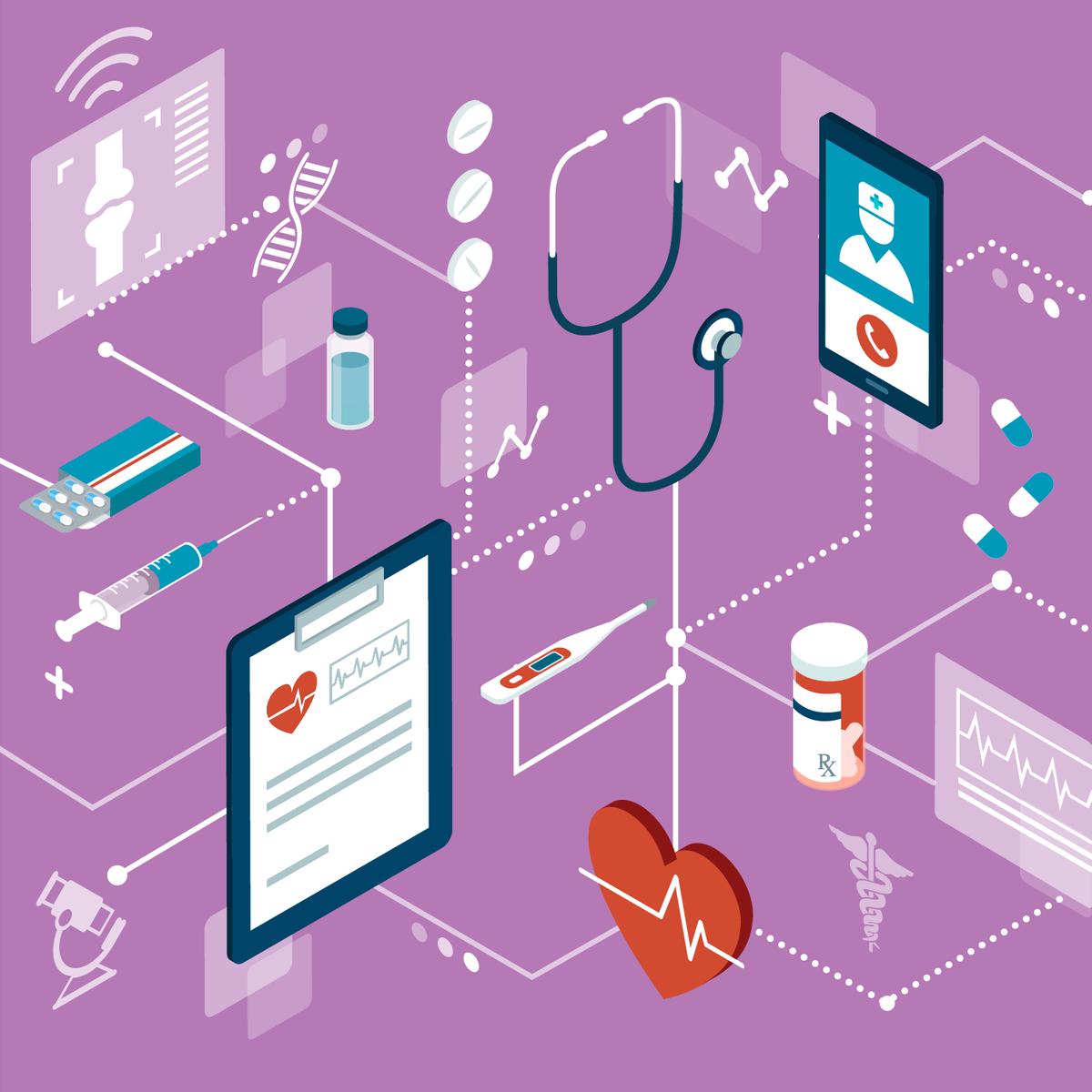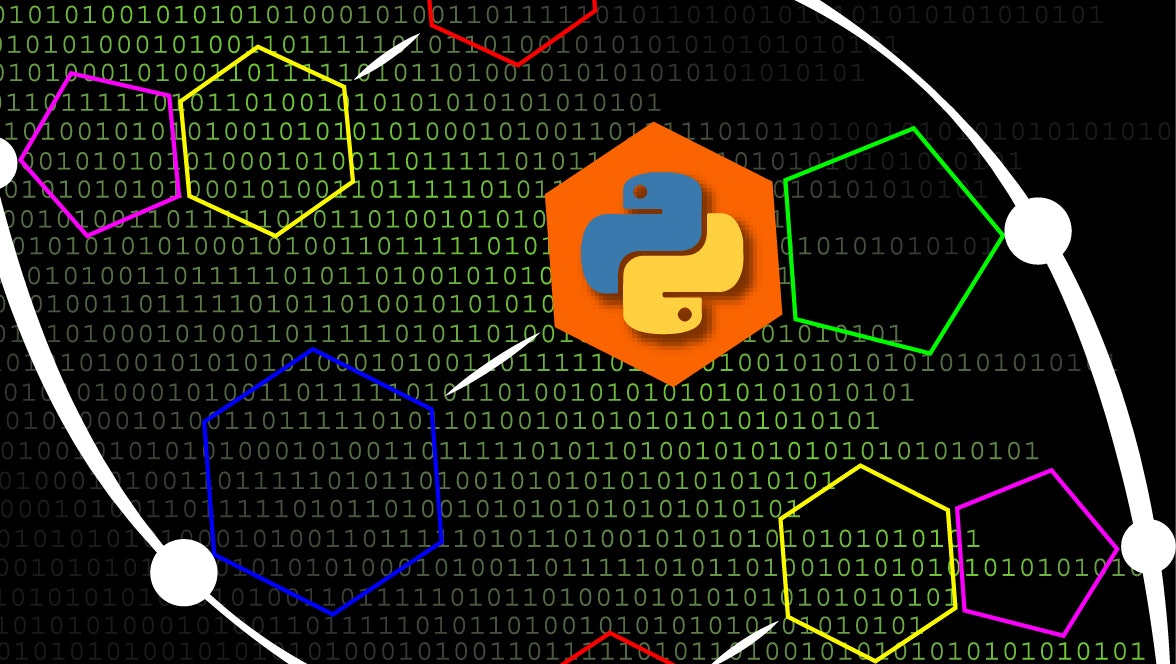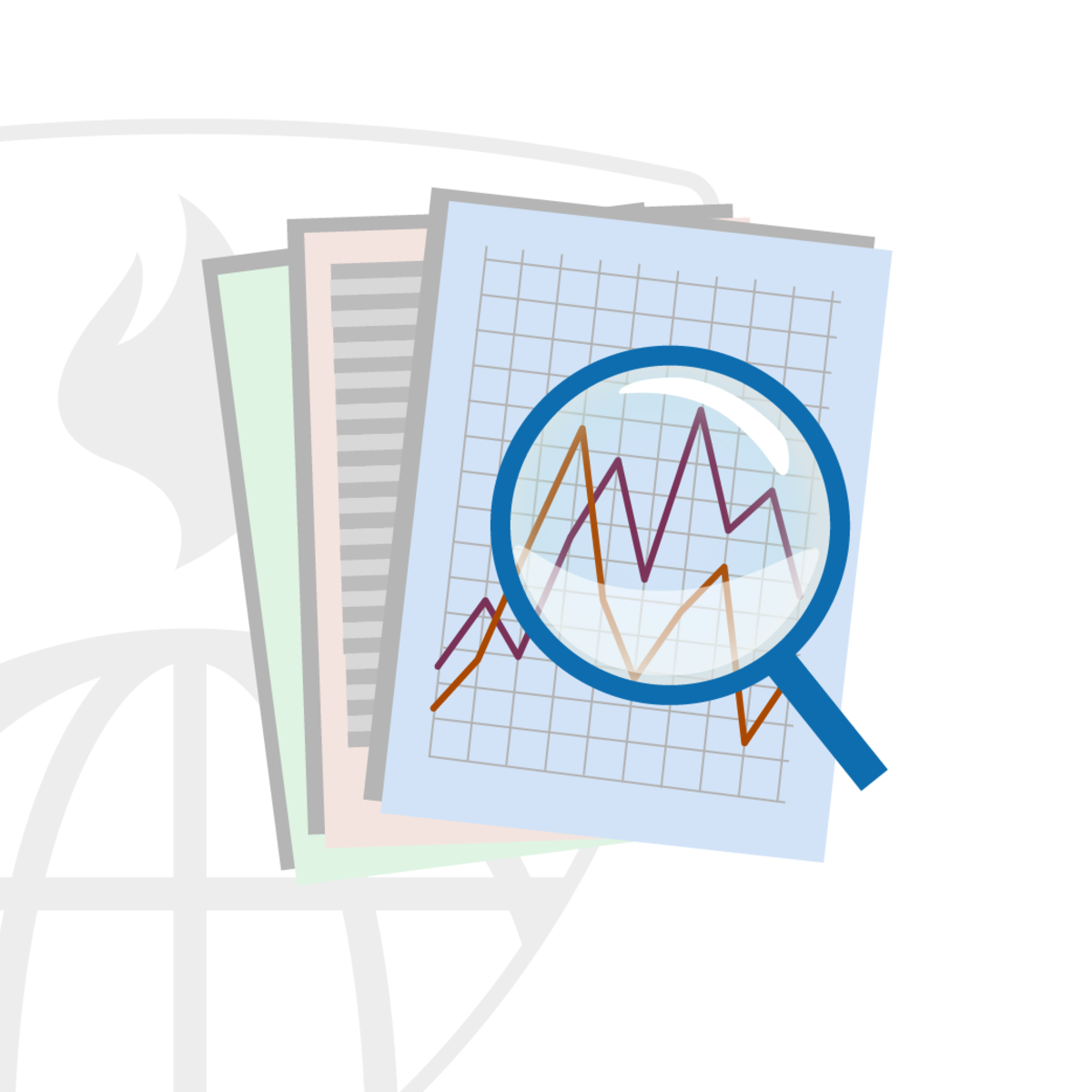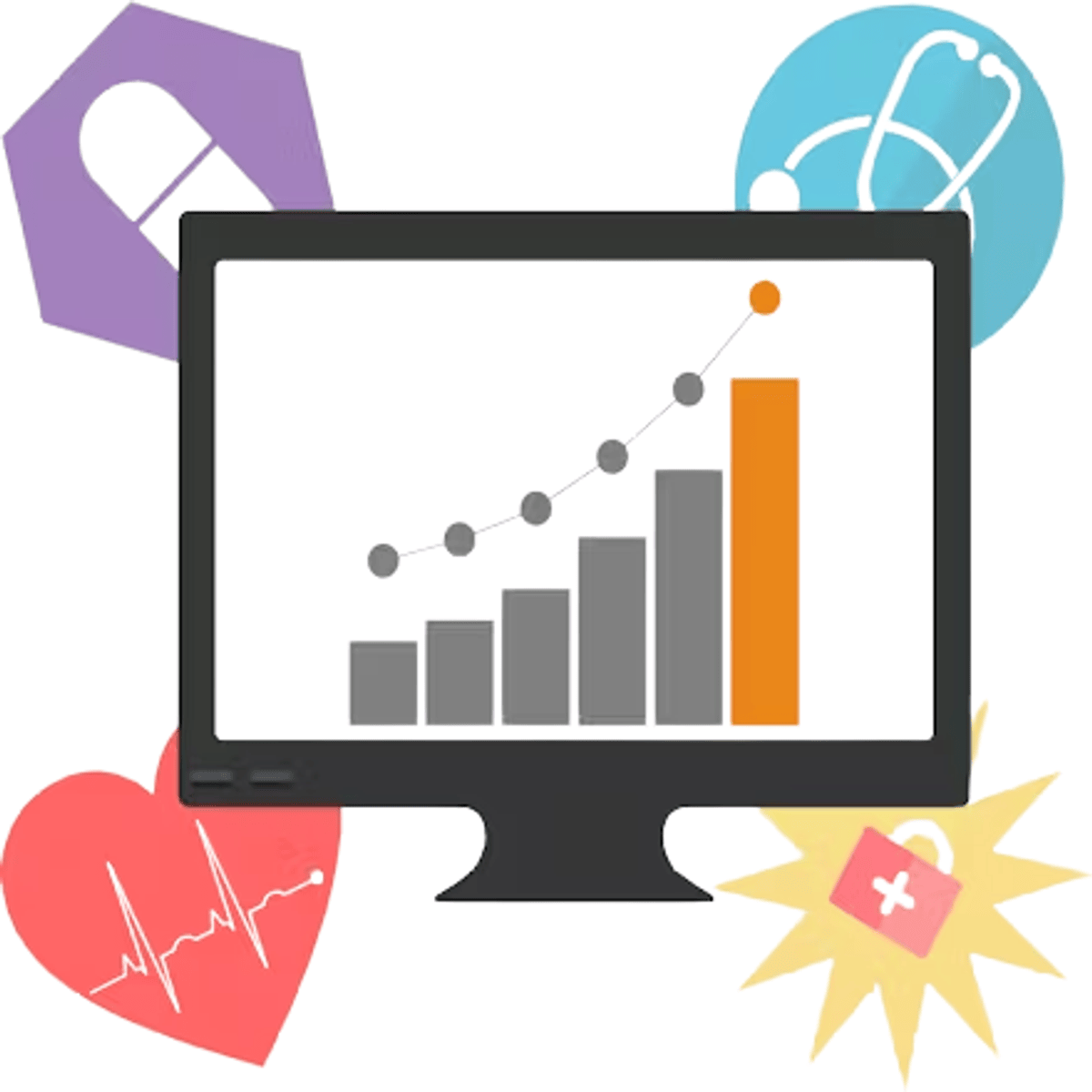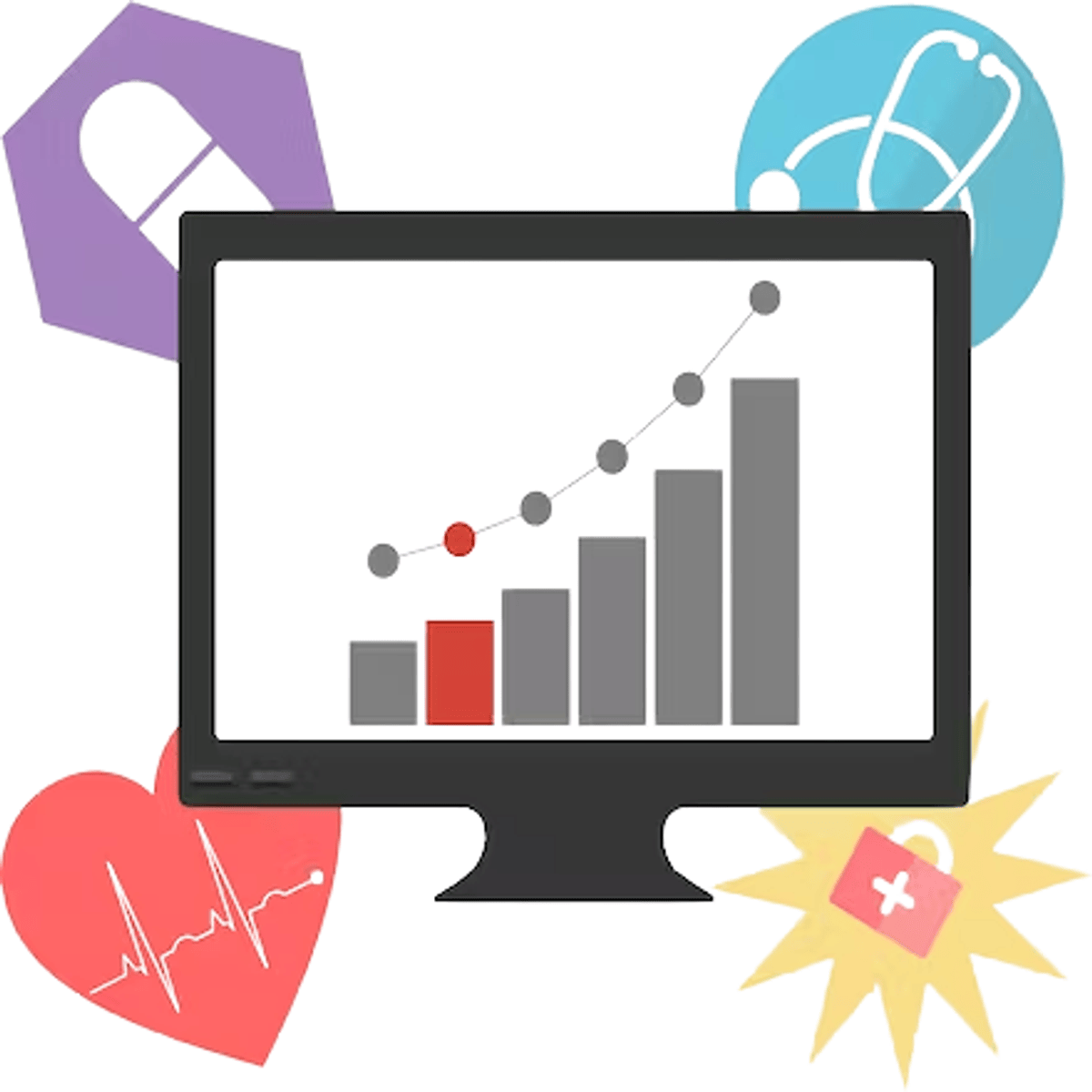Clinical Data Manager
A Comprehensive Guide to a Career as a Clinical Data Manager
Clinical Data Management (CDM) is a critical discipline within clinical research, focusing on the meticulous collection, integration, validation, and management of data gathered during clinical trials. At its core, CDM ensures that the data is accurate, reliable, and processed correctly, forming the backbone of evidence-based medical advancements. This field plays an indispensable role in determining the safety and efficacy of new drugs, medical devices, and treatments. For individuals intrigued by the intersection of healthcare, data, and technology, a career as a Clinical Data Manager offers a challenging and rewarding path.
Working as a Clinical Data Manager involves a dynamic range of responsibilities that directly contribute to the integrity of clinical research and the development of new therapies. One of the exciting aspects of this role is the direct impact on public health; by ensuring data quality, CDMs help researchers draw valid conclusions, which can lead to life-saving treatments. Furthermore, the field is constantly evolving with technological advancements, offering continuous learning opportunities and the chance to work with cutting-edge tools and methodologies in data analysis and management.
Introduction to Clinical Data Management
Embarking on a career in Clinical Data Management means stepping into a vital role within the healthcare and research sectors. This field is dedicated to managing the vast amounts of data generated from clinical trials, ensuring its quality and integrity for analysis and regulatory submission.
Definition and Scope of Clinical Data Management (CDM)
Clinical Data Management (CDM) encompasses the processes and practices for collecting, cleaning, validating, storing, and analyzing data from clinical trials. The primary objective is to ensure that the data is of high quality, reliable, and statistically sound, forming a credible basis for trial conclusions and regulatory submissions. This involves a systematic approach to handling data, from the initial design of data collection tools to the final database lock before analysis.
The scope of CDM is broad, touching every phase of a clinical trial. It includes developing a Data Management Plan (DMP), designing Case Report Forms (CRFs) – whether paper or electronic (eCRFs) – setting up and validating clinical databases, performing data entry (if applicable), data validation (identifying and resolving discrepancies), medical coding, data reconciliation, and ultimately, database lock. Effective CDM is crucial for the timely and successful completion of clinical trials and for bringing new medical interventions to patients.
The field has seen significant evolution with the integration of technology, such as Electronic Data Capture (EDC) systems, which have streamlined data collection and improved real-time monitoring capabilities. This technological shift underscores the dynamic nature of CDM and the continuous need for professionals to adapt and acquire new skills.
Role of a Clinical Data Manager in Clinical Trials
A Clinical Data Manager (CDM) is a specialized professional who oversees all data management activities throughout the lifecycle of a clinical trial. They are the stewards of clinical trial data, ensuring its accuracy, completeness, and integrity from collection to analysis. This role is pivotal because the quality of the data directly impacts the validity of the trial results and the subsequent decisions regarding the safety and efficacy of a new drug or medical device.
CDMs are responsible for developing and implementing the Data Management Plan, which outlines how data will be handled throughout the study. They work closely with various stakeholders, including clinical research associates, biostatisticians, regulatory affairs personnel, and IT teams, to ensure smooth data flow and adherence to protocols and regulatory requirements. Their responsibilities also include designing data collection instruments, managing clinical databases, overseeing data entry and validation processes, generating and resolving data queries, and preparing data for statistical analysis.
The CDM ensures that all data-related activities comply with Good Clinical Practice (GCP) guidelines and other applicable regulatory standards. Their meticulous work is fundamental to the ethical conduct of research and the protection of patient safety. As leaders within the data management team, they often supervise data coordinators and other data management staff.
To support individuals looking to understand the intricacies of clinical trials and data management, several online courses offer foundational knowledge. These courses can provide an excellent starting point for grasping the complexities of the field and the critical responsibilities of a Clinical Data Manager.
Impact of CDM on Healthcare and Drug Development
Clinical Data Management has a profound impact on both healthcare and the drug development process. By ensuring the generation of high-quality, reliable data from clinical trials, CDM provides the solid evidence base needed to evaluate the safety and effectiveness of new medical interventions. This, in turn, allows regulatory agencies like the Food and Drug Administration (FDA) to make informed decisions about approving new drugs and therapies for public use.
Effective CDM accelerates the drug development lifecycle. Efficient data collection, cleaning, and validation processes minimize errors and delays, leading to faster trial completion and quicker submission of new drug applications. This speed is crucial in bringing potentially life-saving treatments to patients sooner. Conversely, poor data management can lead to significant delays, increased costs, and even the failure of promising clinical trials.
Beyond drug approval, the data managed by CDMs contributes to the broader medical knowledge base. It informs treatment guidelines, helps identify patient populations who will benefit most from a therapy, and can lead to the discovery of new biomarkers or therapeutic targets. Ultimately, the meticulous work of Clinical Data Managers directly contributes to improving patient care and advancing public health.
For those interested in the broader context of how data transforms healthcare, exploring topics related to health data analytics and drug development can be highly beneficial.
Key Responsibilities of a Clinical Data Manager
A Clinical Data Manager shoulders a wide array of critical responsibilities, all centered on ensuring the integrity and quality of data collected during clinical trials. These tasks are vital for the success of the research and for meeting regulatory expectations.
Data Collection, Validation, and Cleaning Processes
One of the core responsibilities of a Clinical Data Manager is to oversee the entire lifecycle of clinical trial data, starting with its collection. This involves ensuring that data is gathered according to the study protocol, often using Electronic Data Capture (EDC) systems or traditional paper Case Report Forms (CRFs). The CDM ensures that the data collection methods are robust and designed to capture all necessary information accurately.
Once data is collected, it undergoes a rigorous validation process. This involves running programmed checks (edit checks) to identify discrepancies, inconsistencies, or missing data. For example, an edit check might flag a patient's age if it falls outside a predefined range or if a lab value is physiologically implausible. The CDM is responsible for managing these identified issues by generating data queries that are sent to the clinical sites for resolution.
Data cleaning is an iterative process that continues throughout the trial. It involves resolving queries, correcting errors, and ensuring that the database is an accurate reflection of the information gathered from participants. This meticulous attention to detail is crucial for producing a high-quality dataset that is ready for statistical analysis and regulatory scrutiny. The integrity of the entire clinical trial hinges on the effectiveness of these data collection, validation, and cleaning procedures.
Understanding the nuances of handling clinical data is paramount. Courses focusing on clinical data, its types, and quality assurance provide valuable insights into these fundamental processes.
Database Design and Management for Clinical Trials
Clinical Data Managers play a significant role in the design and management of clinical trial databases. Before a trial begins, the CDM, often in collaboration with database programmers and statisticians, contributes to designing the database structure that will house all the study data. This design must align with the Case Report Forms (CRFs) and the study protocol, ensuring that all required data points can be captured accurately and efficiently.
The database design includes specifying variable types, validation rules (edit checks), and the overall architecture. Modern clinical trials predominantly use Electronic Data Capture (EDC) systems, and CDMs are heavily involved in the setup and user acceptance testing (UAT) of these systems to ensure they function as intended. This involves testing data entry screens, edit checks, query workflows, and reporting functionalities.
Throughout the trial, the CDM oversees the management of the database. This includes managing user access, ensuring data security and integrity, and performing database updates or modifications if protocol amendments occur. They are also responsible for procedures related to database lock, which is the critical step of finalizing the database after all data has been entered, cleaned, and validated, prior to unblinding (if applicable) and statistical analysis.
For those looking to deepen their understanding of database management and its application in research, specific courses can offer practical knowledge. Additionally, exploring the topic of clinical data models provides a broader perspective on organizing and structuring clinical information.
Ensuring Compliance with Regulatory Standards (e.g., FDA, ICH-GCP)
A critical responsibility of a Clinical Data Manager is to ensure that all data management activities adhere to stringent regulatory standards. Key among these are the guidelines for Good Clinical Practice (GCP), often based on the International Council for Harmonisation of Technical Requirements for Pharmaceuticals for Human Use (ICH-GCP). These guidelines provide a unified standard for designing, conducting, recording, and reporting clinical trials involving human subjects, ensuring data credibility and patient protection.
CDMs must also be knowledgeable about regulations from specific health authorities, such as the U.S. Food and Drug Administration (FDA) or the European Medicines Agency (EMA). For instance, FDA's 21 CFR Part 11 outlines the criteria for acceptance of electronic records and electronic signatures, which is highly relevant for trials using EDC systems. Adherence to these regulations is not optional; it is essential for the acceptance of trial data by regulatory bodies for new drug or device approvals.
This responsibility extends to maintaining comprehensive documentation of all data management processes, including the Data Management Plan, CRF completion guidelines, data validation specifications, and audit trails. CDMs often play a role in preparing for and participating in regulatory inspections and audits, demonstrating that the trial data is accurate, reliable, and has been managed in a compliant manner. The increasing complexity of global trials and evolving data privacy regulations, such as GDPR, further underscore the importance of this compliance oversight.
For a deeper dive into the regulatory and quality aspects of clinical research, the following resources can be beneficial:
Educational Pathways and Certifications
Embarking on a career as a Clinical Data Manager typically requires a specific educational foundation and, for many, professional certifications to validate their expertise. Understanding these pathways is crucial for aspiring professionals and those looking to advance in the field.
Relevant Degrees (e.g., Life Sciences, Biostatistics, IT)
A bachelor's degree is generally considered the minimum educational requirement for entry-level positions in clinical data management. Commonly sought-after degrees are in life sciences (such as biology, pharmacology, biochemistry), health sciences, nursing, biostatistics, statistics, computer science, information technology, or health information management. These fields provide a strong foundation in scientific principles, data analysis, and/or technical skills crucial for the role.
Some employers may prefer candidates with a master's degree, particularly for more senior roles or positions with greater responsibility. A master's degree in a relevant field like public health, biostatistics, data science, or health informatics can enhance a candidate's qualifications and understanding of complex research methodologies and data management techniques. While a Ph.D. is generally not required, it can be an asset for those aspiring to very high-level strategic or research-focused roles within large organizations, though experience often weighs heavily in career progression.
Regardless of the specific degree, coursework in areas like mathematics, statistics, research methods, database management, and computer programming can be highly beneficial. Strong analytical and critical thinking skills, often honed through scientific or technical degree programs, are also essential.
Online courses can supplement formal education by providing specialized knowledge. For example, an introduction to probability and data can be invaluable for understanding the statistical underpinnings of clinical research.
For those building a foundational understanding, books covering biostatistics and the practical aspects of clinical research can be very helpful.
Certifications (e.g., CCDM by SCDM, CDISC)
Professional certifications can significantly enhance a Clinical Data Manager's credentials and demonstrate a commitment to the profession. The most recognized certification in the field is the Certified Clinical Data Manager (CCDM®) offered by the Society for Clinical Data Management (SCDM). Achieving CCDM status typically requires a combination of education and practical experience in clinical data management, along with passing a comprehensive examination. SCDM has also introduced other certifications like the Certified Clinical Data Associate (CCDA) for those starting their careers and plans for a Certified Clinical Data Scientist (CCDS) for more advanced roles.
Another important organization in the field is the Clinical Data Interchange Standards Consortium (CDISC). While CDISC itself is primarily focused on developing data standards, it offers educational programs and training on these standards (e.g., SDTM, ADaM, CDASH). Proficiency in CDISC standards is highly valued, and demonstrating this knowledge, perhaps through CDISC's educational offerings, can be a significant advantage. Some CDISC courses also offer Continuing Education Units (CEUs) that can be applied towards recertification for other credentials.
These certifications and training programs help ensure that Clinical Data Managers possess a standardized level of knowledge and competence, which is crucial for maintaining data quality and regulatory compliance in clinical trials. For individuals looking to formalize their skills or transition into the field, pursuing relevant certifications can be a strategic career move. Many online platforms offer courses designed to prepare individuals for such certifications or provide in-depth knowledge relevant to the field.
One such advanced certification course provides comprehensive training in various aspects of clinical data management, aligning with industry needs.
Continuous Education and Industry Workshops
The field of clinical data management is dynamic, with evolving regulations, technologies, and best practices. Therefore, continuous education and participation in industry workshops are vital for Clinical Data Managers to stay current and advance their careers. This commitment to lifelong learning ensures that professionals remain proficient in the latest CDM tools, techniques, and regulatory requirements.
Professional organizations like the Society for Clinical Data Management (SCDM) and the Association of Clinical Research Professionals (ACRP) often host conferences, webinars, and workshops. These events provide opportunities for networking, learning about new trends, and earning continuing education units (CEUs) which may be required for maintaining certifications. Similarly, CDISC offers various training programs and updates on its data standards, which are critical for anyone in the field.
Many universities and online learning platforms also offer specialized courses and certificate programs in areas relevant to clinical data management, such as data science, healthcare informatics, and regulatory affairs. Engaging in these educational opportunities allows CDMs to enhance their skills, broaden their knowledge base, and adapt to the changing demands of the industry, such as the increasing use of AI and machine learning in data processing.
Keeping abreast of new tools and methodologies in data science and healthcare data is crucial. Online courses can provide accessible avenues for continuous learning.
For a comprehensive understanding of data science principles that are increasingly relevant in CDM, certain books offer valuable knowledge.
Technical and Soft Skills Required
Success as a Clinical Data Manager hinges on a robust combination of technical competencies and well-developed soft skills. The role demands not only an understanding of complex data systems and regulatory landscapes but also the ability to communicate effectively and manage projects meticulously.
Proficiency in CDM Software (e.g., SAS, Medidata)
Technical proficiency in specialized software is a cornerstone of a Clinical Data Manager's skillset. Electronic Data Capture (EDC) systems are widely used in modern clinical trials for collecting and managing study data. Familiarity with leading EDC platforms such as Medidata Rave or Oracle Clinical is often a requirement. These systems are used for CRF design, data entry, query management, and data validation.
Beyond EDC systems, knowledge of Statistical Analysis System (SAS) programming is highly valued, particularly for data manipulation, reporting, and sometimes for performing complex data validation checks. While biostatisticians typically conduct the final statistical analysis, CDMs may use SAS for data review, creating datasets for analysis, and generating reports. Proficiency in other data-related tools, including database management systems (like SQL for querying databases) and even programming languages like Python or R, is becoming increasingly beneficial as the field incorporates more data science techniques.
Familiarity with medical coding dictionaries such as MedDRA (Medical Dictionary for Regulatory Activities) and WHO-DD (WHO Drug Dictionary) is also essential for coding adverse events and medications consistently. As the industry evolves, skills in data visualization tools and understanding data warehousing concepts can further enhance a CDM's capabilities.
To develop programming skills relevant to data management and analysis in the life sciences, several online courses focus on languages like Python, specifically tailored for biological or genomic data.
For those looking to build a strong mathematical foundation for data-related tasks, certain books can be extremely useful.
Data Standards (CDISC, SDTM)
A thorough understanding of clinical data standards is crucial for Clinical Data Managers. The Clinical Data Interchange Standards Consortium (CDISC) provides a suite of standards that enable the consistent collection, exchange, submission, and archiving of clinical trial data. Adherence to these standards is increasingly expected, and often required, by regulatory authorities like the FDA and Japan's PMDA.
Key CDISC standards that CDMs must be familiar with include the Study Data Tabulation Model (SDTM), which provides a standard format for organizing and submitting clinical trial data. Another is the Clinical Data Acquisition Standards Harmonization (CDASH), which offers guidelines for collecting data in a standardized way at the point of entry. Understanding the Analysis Data Model (ADaM) is also beneficial, as it specifies standards for creating analysis datasets.
Proficiency in these standards ensures data quality, interoperability, and traceability, facilitating more efficient regulatory review and data sharing. CDMs are often responsible for ensuring that data is mapped to these standards and that all related documentation, like Define-XML (which describes the structure and content of the data), is accurate. As such, continuous learning about CDISC standards and their implementation is a key aspect of professional development in this field.
Gaining knowledge of how data is structured and standardized is fundamental. The topic of healthcare data provides context to these standards.
Attention to Detail, Communication, and Problem-Solving Skills
Beyond technical expertise, certain soft skills are indispensable for a Clinical Data Manager. Perhaps foremost among these is meticulous attention to detail. Clinical data must be accurate and complete, as even minor errors can have significant implications for trial results and patient safety. CDMs must be thorough in reviewing data, identifying discrepancies, and ensuring all issues are resolved.
Communication skills are also paramount. CDMs interact with a diverse range of stakeholders, including clinical site staff, monitors, biostatisticians, medical writers, IT personnel, and project managers. They need to clearly articulate data issues, explain complex data management processes, and effectively collaborate within multidisciplinary teams. Good written communication is necessary for developing documentation and reports.
Strong problem-solving skills are frequently called upon. CDMs encounter various challenges, such as ambiguous data, system issues, or non-adherence to protocols. They must be able to analyze these problems, identify root causes, and develop effective solutions in a timely manner to keep the trial on track. Adaptability, organizational skills, and the ability to manage priorities and meet deadlines are also crucial for success in this demanding role.
Developing these soft skills is often a continuous process. While not always taught in a classroom, understanding their importance in a professional context is vital. Exploring resources on Professional Development can provide insights into honing these essential attributes.
Career Progression and Opportunities
The field of Clinical Data Management offers a structured career path with significant opportunities for growth and advancement. Professionals can progress from entry-level positions to leadership roles, taking on increasing responsibility and often specializing in particular areas of expertise.
Entry-Level Roles (e.g., Clinical Data Coordinator)
For individuals starting their career in Clinical Data Management, typical entry-level roles include Clinical Data Coordinator (CDC), Clinical Data Associate, or Data Entry Specialist. In these positions, the primary responsibilities often involve hands-on data tasks such as data entry (if paper CRFs are used), reviewing data for completeness and accuracy, generating and tracking data queries, and assisting Clinical Data Managers with various data management activities.
These roles provide an excellent opportunity to learn the fundamentals of clinical data management, gain familiarity with EDC systems and data validation processes, and understand the importance of regulatory compliance and Good Clinical Practice. A strong attention to detail, good organizational skills, and basic computer literacy are essential. Typically, a bachelor's degree in a life science, health science, or a related technical field is required for these positions.
While gaining experience, individuals in these roles often work closely with more senior data management staff, providing a valuable learning environment. This initial experience is crucial for building the skills and knowledge necessary to advance to more responsible positions within the field.
Those new to the field may find it helpful to explore related career paths to understand the broader clinical research landscape.
Mid-Career Paths (e.g., Senior CDM, Lead Data Manager)
After gaining several years of experience in entry-level roles, Clinical Data Coordinators or Associates can progress to mid-career positions such as Clinical Data Manager, Senior Clinical Data Manager, or Lead Data Manager. At this stage, professionals take on more responsibility for overseeing the data management aspects of one or more clinical trials.
Responsibilities typically include developing and maintaining the Data Management Plan (DMP), designing or reviewing CRFs, overseeing database setup and validation, managing data cleaning activities, and ensuring adherence to timelines and budgets. They often serve as the primary point of contact for data management issues on their assigned studies and may supervise junior data management staff. Strong project management skills become increasingly important at this level.
Mid-career CDMs are expected to have a deep understanding of CDM processes, regulatory requirements (like ICH-GCP and 21 CFR Part 11), and proficiency in various CDM software and tools. They collaborate extensively with cross-functional teams, including clinical operations, biostatistics, and medical affairs. Continuous learning and potentially obtaining certifications like the CCDM can support career advancement at this stage.
This is the core role in the field, and understanding its nuances is key.
Books focusing on the practical aspects of data management and the specific challenges of clinical trials can be particularly useful for those in or aspiring to these roles.
Advanced Roles (e.g., Director of Data Management)
With significant experience and demonstrated leadership capabilities, Clinical Data Managers can advance to senior and executive-level positions. These roles may include titles such as Manager of Clinical Data Management, Associate Director, Director of Clinical Data Management, or even Vice President of Data Management in larger organizations.
In these advanced roles, responsibilities shift towards strategic planning, departmental oversight, resource management, and process improvement. Individuals at this level are often responsible for establishing and maintaining departmental SOPs (Standard Operating Procedures), ensuring compliance across all projects, managing budgets, and mentoring and developing data management staff. They play a key role in shaping the organization's data management strategy and adopting new technologies and methodologies.
Strong leadership, strategic thinking, and excellent communication skills are crucial for success in these advanced positions. A deep understanding of the regulatory landscape, industry trends, and business aspects of clinical research is also essential. While a master's degree can be beneficial, extensive experience and a strong track record of success are often the primary qualifications for these leadership roles.
As data management becomes more sophisticated, roles like Clinical Data Scientist are also emerging, bridging traditional CDM with advanced analytics.
Industry Applications and Sectors
The expertise of Clinical Data Managers is indispensable across various sectors involved in health research and development. Their skills ensure that the data underpinning new medical advancements is robust, reliable, and compliant, making them valuable assets in several key industries.
Pharmaceutical and Biotechnology Companies
Pharmaceutical and biotechnology companies are primary employers of Clinical Data Managers. These organizations are at the forefront of discovering, developing, and manufacturing new drugs and biologic therapies. Clinical trials are the cornerstone of this process, and the vast amounts of data generated require meticulous management to ensure efficacy, safety, and regulatory approval.
Within these companies, CDMs are integral members of clinical development teams. They work on trials across all phases of drug development, from early Phase I studies focusing on safety to large-scale Phase III trials evaluating efficacy, and even post-marketing Phase IV studies. Their responsibilities include everything from protocol input on data collection aspects to database lock and providing clean datasets for analysis, all while ensuring compliance with global regulatory standards.
The drive for efficiency and the increasing complexity of clinical trials, including adaptive designs and the integration of real-world data, mean that the role of CDM professionals in these sectors is constantly evolving and in demand. These companies rely heavily on skilled data managers to navigate complex data landscapes and bring innovative treatments to patients.
Understanding the drug development process is crucial for CDMs in this sector. Courses focusing on drug development can provide this essential context.
Contract Research Organizations (CROs)
Contract Research Organizations (CROs) are significant employers of Clinical Data Managers. CROs provide a wide range of research services to pharmaceutical, biotechnology, and medical device companies on a contract basis. These services often include clinical trial planning, execution, monitoring, and, critically, clinical data management.
CDMs working in CROs may be involved in projects for various sponsors and across diverse therapeutic areas. This can offer a dynamic work environment with opportunities to gain broad experience. Responsibilities within a CRO are similar to those in pharmaceutical companies, encompassing the full spectrum of data management activities from study start-up to database lock. CROs often have well-established data management processes and systems to handle multiple projects efficiently.
The CRO sector has seen substantial growth as many sponsor companies choose to outsource their clinical trial activities to leverage the specialized expertise and infrastructure of CROs. This trend creates a consistent demand for skilled Clinical Data Managers within these organizations. Functional Service Provider (FSP) models, where CROs provide specific services like data management, are also common.
For those interested in understanding the operational aspects of clinical trials, which is highly relevant when working in a CRO, certain courses can be enlightening.
Academic Research Institutions and Regulatory Agencies
Academic research institutions, such as universities and teaching hospitals, also employ Clinical Data Managers. These institutions conduct a wide range of investigator-initiated trials and collaborative research projects, often funded by government grants or foundations. CDMs in academic settings support these research endeavors by ensuring data quality and integrity, similar to their counterparts in industry.
The types of studies may vary, from smaller, focused trials to larger, multi-center studies. The environment in academia might offer different research focuses and potentially more direct involvement with principal investigators and research teams. While the core principles of CDM remain the same, the resources and scale of operations might differ from those in large pharmaceutical companies or CROs.
Regulatory agencies, such as the FDA or EMA, also require professionals with a deep understanding of clinical data. While they may not employ "Clinical Data Managers" in the same operational sense as industry, they have roles (e.g., reviewers, data analysts, informaticians) that involve scrutinizing clinical trial data submitted for drug approval, developing data standards, and ensuring data quality. Expertise in CDM principles is highly valuable for individuals in these regulatory roles.
A foundational understanding of public health and surveillance can be beneficial for roles in academic institutions or government-related health organizations.
Books on nursing informatics and evidence-based practice can also offer relevant perspectives, especially for those in academic or hospital-based research settings.
Challenges in Clinical Data Management
While a career in Clinical Data Management is rewarding, it is not without its challenges. Professionals in this field must navigate complex trial designs, evolving technological landscapes, and stringent regulatory environments to ensure data integrity and successful trial outcomes.
Managing Large-Scale, Multi-Center Trials
One of the significant challenges in CDM is managing data from large-scale, multi-center clinical trials. These trials often involve numerous participating sites, sometimes spread across different countries, each contributing a substantial volume of patient data. Coordinating data collection, ensuring consistency in data entry practices, and managing queries across multiple sites require robust systems and exceptional organizational skills.
The sheer volume and diversity of data from such trials can be overwhelming. Data may come from various sources, including EDC systems, central laboratories, imaging vendors, and patient-reported outcomes collected via electronic devices. Integrating and reconciling these disparate data streams while maintaining quality and consistency is a complex undertaking. CDMs must implement efficient workflows and leverage technology to manage this complexity effectively.
Furthermore, cultural and linguistic differences in global trials can add another layer of complexity to data management. Ensuring that data collection instruments are understood consistently and that data is accurately translated (if necessary) requires careful planning and oversight. The logistical challenges of training site staff and monitoring data quality across geographically dispersed locations also demand significant effort.
Addressing the complexities of modern clinical trials often involves advanced data handling techniques. Exploring topics like Big Data in healthcare can provide context to these challenges.
Data Privacy and Cybersecurity Risks
Clinical trial data is highly sensitive, containing personal health information about study participants. Protecting this data from unauthorized access, breaches, and cyberattacks is a paramount concern and a significant challenge for Clinical Data Managers. The consequences of a data breach can be severe, including harm to patients, loss of public trust, regulatory penalties, and damage to the sponsoring organization's reputation.
CDMs must ensure that all data management processes comply with stringent data privacy regulations, such as the Health Insurance Portability and Accountability Act (HIPAA) in the United States and the General Data Protection Regulation (GDPR) in Europe. This involves implementing robust security measures, including access controls, data encryption, secure data storage, and regular security audits.
The increasing use of electronic systems, mobile health technologies, and decentralized trial models, while offering many benefits, can also introduce new cybersecurity vulnerabilities. CDMs must stay vigilant and work closely with IT and security experts to identify and mitigate these risks. This includes ensuring that vendors providing data management systems or related services also meet the required security standards.
Understanding the principles of data security and compliance is crucial. Specialized courses in this area are highly recommended.
Adapting to Evolving Regulatory Landscapes
The regulatory landscape for clinical trials and data management is constantly evolving. Health authorities periodically update their guidelines and requirements in response to new scientific understanding, technological advancements, and ethical considerations. Keeping abreast of these changes and ensuring ongoing compliance is a significant challenge for Clinical Data Managers.
For example, there have been recent and upcoming updates to foundational documents and guidelines like the Declaration of Helsinki, WHO Best Practices for Clinical Trials, and the ICH E6 (R3) Good Clinical Practice guidelines. These changes often impact data collection, management, monitoring, and reporting practices. CDMs must proactively monitor these regulatory developments, interpret their implications for their work, and adapt their processes and SOPs accordingly.
The globalization of clinical trials means that CDMs often need to be aware of regulations in multiple jurisdictions. Furthermore, new types of data, such as from wearable devices or real-world evidence sources, may have specific regulatory considerations. This dynamic environment requires a commitment to continuous learning and a proactive approach to compliance to avoid potential regulatory pitfalls.
Staying informed about regulatory affairs is an ongoing necessity. Exploring resources on prescription drug regulation and medical technology evaluation can provide broader context.
Emerging Trends and Technologies
The field of Clinical Data Management is not static; it is continually being shaped by technological innovations and new research paradigms. Staying informed about these emerging trends is crucial for CDMs who wish to remain at the forefront of their profession and contribute to more efficient and effective clinical research.
AI and Machine Learning in Data Cleaning
Artificial Intelligence (AI) and Machine Learning (ML) are increasingly being explored and implemented to enhance various aspects of clinical data management, particularly in data cleaning and validation. Traditional data cleaning can be a time-consuming and labor-intensive process. AI/ML algorithms can automate the identification of anomalies, inconsistencies, and potential errors in large datasets with greater speed and, in some cases, higher accuracy than manual review alone.
For example, ML models can be trained to recognize complex patterns that may indicate data errors or fraudulent entries. Natural Language Processing (NLP), a subset of AI, can help extract and structure information from unstructured data sources, such as clinician notes or adverse event narratives, making it more amenable to analysis and review. These technologies can help prioritize queries, suggest corrections, and even predict potential data quality issues before they become significant problems.
While the adoption of AI/ML in CDM is still evolving, its potential to streamline workflows, improve data quality, and accelerate trial timelines is significant. CDMs will increasingly need to understand these technologies and how to work alongside them, potentially requiring new skills in data science and analytics. You can explore Artificial Intelligence courses on OpenCourser to learn more.
Courses that touch upon advanced data science techniques and their application in healthcare are becoming increasingly relevant.
A book that explores the transformative potential of AI in medicine provides excellent background.
Decentralized Clinical Trials and Real-World Data
Decentralized Clinical Trials (DCTs) represent a significant shift in how clinical research is conducted. DCTs leverage digital technologies, such as wearable sensors, mobile apps, telemedicine, and direct-to-patient shipments of investigational products, to allow some or all trial activities to occur outside of traditional brick-and-mortar research sites, often in participants' homes. This patient-centric approach can improve recruitment, retention, and diversity in trials.
However, DCTs also present new data management challenges. Data is collected from a wider variety of sources, often in real-time, and may be less structured than data from traditional site visits. CDMs must adapt their strategies to manage this influx of diverse data, ensure its quality and integrity, and integrate it effectively into the clinical database. This includes considerations for data security, patient privacy, and ensuring the reliability of data from remote technologies.
The use of Real-World Data (RWD), such as data from electronic health records (EHRs), insurance claims, and patient registries, is also becoming more prevalent in clinical research. RWD can provide valuable insights into treatment effectiveness and safety in routine clinical practice. CDMs may be involved in managing and integrating RWD with clinical trial data, which requires understanding the complexities and limitations of these data sources.
Understanding how to work with diverse healthcare data types and models is key in this evolving landscape.
Blockchain for Data Integrity
Blockchain technology, known for its use in cryptocurrencies, is being explored for its potential to enhance data integrity, security, and transparency in clinical trials. A blockchain is a decentralized, distributed, and immutable ledger that can record transactions or data in a verifiable and permanent way. This characteristic makes it an attractive option for ensuring the trustworthiness of clinical trial data.
In the context of CDM, blockchain could potentially be used to create auditable and tamper-proof records of data collection, consent management, and data modifications. This could improve the traceability of data, enhance security by decentralizing data storage (reducing single points of failure), and streamline data sharing among authorized stakeholders while maintaining patient privacy through cryptographic techniques.
While the adoption of blockchain in clinical trials is still in its early stages and faces challenges related to scalability, interoperability, and regulatory acceptance, its potential to address some of the longstanding issues around data integrity and security is being actively investigated. CDMs with an understanding of this emerging technology may find themselves well-positioned as its applications in clinical research mature. For those interested, Blockchain courses can provide a good introduction.
The drive for robust data solutions is constant. Exploring more about general data management principles can be beneficial.
Ethical Considerations in Data Handling
Ethical conduct is paramount in clinical research, and Clinical Data Managers play a crucial role in upholding these principles, particularly concerning the handling of sensitive patient data. Adherence to ethical guidelines ensures the protection of trial participants and maintains public trust in the research process.
Patient Data Confidentiality and GDPR Compliance
Maintaining patient data confidentiality is a fundamental ethical obligation in clinical data management. Clinical trial participants entrust researchers with their personal health information, and CDMs are responsible for ensuring this data is protected from unauthorized disclosure at all stages of the trial. This involves implementing strict access controls, anonymization or pseudonymization techniques where appropriate, and secure data storage and transmission practices.
Compliance with data privacy regulations is a key aspect of this. The General Data Protection Regulation (GDPR) in Europe, for example, sets stringent rules for the collection, processing, and storage of personal data, including health data. CDMs working on trials that involve European participants or data must ensure their practices align with GDPR requirements, which include obtaining explicit consent for data processing, ensuring data subject rights (like the right to access or erasure), and implementing appropriate technical and organizational measures to protect data.
Similar data protection laws exist in other regions, and CDMs must be aware of and adhere to all applicable regulations to safeguard patient privacy and avoid legal and ethical breaches. This requires ongoing attention to evolving legal frameworks and a proactive approach to data protection.
Understanding data privacy is non-negotiable. Courses focusing on healthcare data security and compliance are essential for any aspiring or practicing CDM.
Bias Mitigation in Clinical Datasets
Bias in clinical datasets can significantly compromise the validity of trial results and lead to incorrect conclusions about a treatment's efficacy or safety. While bias can be introduced at various stages of a clinical trial (e.g., study design, patient selection), Clinical Data Managers have a role in ensuring that data collection and management processes do not inadvertently introduce or exacerbate bias.
This includes ensuring that Case Report Forms are designed to collect data objectively and consistently across all participants and sites. Standardized data collection procedures and clear definitions for data points help minimize variability that could lead to bias. During data validation and cleaning, CDMs must be careful that the processes used to identify and resolve discrepancies are applied uniformly and do not selectively alter data in a way that could skew results.
Furthermore, as AI and machine learning are increasingly used in data analysis, it's important to be aware of potential biases in the algorithms themselves or in the data used to train them. While the primary responsibility for addressing algorithmic bias may lie with data scientists and statisticians, CDMs who prepare and manage the data for these analyses should be mindful of data quality and representativeness to support fair and unbiased outcomes. The overarching goal is to ensure that the final dataset accurately reflects the trial's findings without systematic distortion.
For those interested in the analytical aspects and the potential pitfalls in data interpretation, courses on data analysis and ethical data use are beneficial.
Transparency in Data Reporting
Transparency in data reporting is a key ethical principle in clinical research. It ensures that the conduct of the trial and its results are communicated honestly and openly, allowing for scrutiny and building trust among the scientific community, regulatory agencies, and the public. Clinical Data Managers contribute to transparency by ensuring that the data management processes are well-documented and that the final datasets accurately and completely reflect the data collected during the trial.
This includes maintaining a clear audit trail of all data modifications, ensuring that any discrepancies and their resolutions are properly documented, and that the database lock procedures are followed rigorously. The data provided for statistical analysis must be a faithful representation of the source data, and any data exclusions or imputations should be clearly justified and documented.
Initiatives promoting data sharing and public disclosure of clinical trial results further emphasize the need for transparent data management practices. By ensuring that data is well-organized, clearly defined (e.g., through adherence to CDISC standards), and accurately reflects the trial's conduct, CDMs facilitate these transparency efforts. This ultimately contributes to the advancement of science and informs healthcare decisions based on complete and unbiased information.
To ensure reports are clear and data is presented effectively, understanding how to work with clinical data for reporting purposes is key.
Global Job Market and Salary Insights
The career outlook for Clinical Data Managers is generally positive, driven by the continuous growth in the pharmaceutical and biotechnology industries, an increasing number of clinical trials worldwide, and the growing complexity of data being collected. Understanding the job market dynamics and salary expectations can help individuals make informed career decisions.
Demand in North America, Europe, and Emerging Markets
The demand for skilled Clinical Data Managers is robust in established pharmaceutical markets like North America (USA and Canada) and Europe. These regions host a large number of pharmaceutical companies, CROs, and research institutions that are constantly conducting clinical trials. Consequently, there is a steady need for professionals who can manage the complex data generated by these studies.
Emerging markets, particularly in Asia (e.g., China, India, South Korea), are also seeing increased clinical trial activity, leading to a growing demand for CDM professionals in these regions. As global trials become more common, opportunities may exist for CDMs to work on international projects or even relocate. The specific demand can vary by country and therapeutic area, but the overall trend points towards a growing need for data management expertise globally.
Several factors contribute to this demand, including the increasing volume and complexity of clinical trial data, more stringent regulatory requirements, and the adoption of new technologies that require specialized skills. Organizations are constantly seeking individuals who can ensure data quality, integrity, and compliance in this evolving landscape.
According to one source, job opportunities for clinical data managers in the US increased significantly since 2019, with a projected growth of approximately 15% through 2030. Another report from the U.S. Bureau of Labor Statistics projects employment in broader fields related to medical research and information management (including data scientists, a related role) to grow significantly. For example, the employment of data scientists is projected to grow 36 percent from 2023 to 2033. BigFuture Career Search also indicates a positive growth rate for Clinical Data Managers.
Average Salary Ranges and Factors Affecting Compensation
Salaries for Clinical Data Managers can vary significantly based on several factors, including geographic location, years of experience, level of education, certifications held, the type and size of the employing organization (e.g., pharmaceutical company, CRO, academic institution), and the complexity of the trials being managed.
In general, entry-level positions like Clinical Data Coordinator might start in the range of $40,000 to $70,000 USD annually in the United States, though this can fluctuate. Mid-level Clinical Data Managers with several years of experience can expect salaries ranging from approximately $80,000 to $120,000 USD or higher. Senior-level and management roles, such as Director of Data Management, can command salaries well over $150,000, sometimes exceeding $200,000 USD, especially with extensive experience and a strong track record. Some sources indicate a median salary around $108,020, with ranges from $62,600 to $138,780.
Factors that can positively influence compensation include holding the CCDM certification, proficiency in high-demand software like SAS or specific EDC systems, experience in complex therapeutic areas like oncology, and strong project management and leadership skills. As with many professions, salaries tend to be higher in regions with a higher cost of living and a greater concentration of pharmaceutical and biotech companies. It's advisable to research salary benchmarks for specific locations and experience levels using resources like U.S. Bureau of Labor Statistics or industry-specific salary surveys.
Remote Work Opportunities Post-Pandemic
The nature of clinical data management, which is heavily reliant on computer systems and electronic data, lends itself well to remote work. Even before the COVID-19 pandemic, some CDM roles offered remote or hybrid arrangements. The pandemic significantly accelerated the adoption of remote work across many industries, including clinical research.
Many Clinical Data Managers now have the option to work fully remotely or in a hybrid model, depending on the employer's policies and the specific requirements of the role. This flexibility can improve work-life balance and expand job opportunities beyond an individual's immediate geographic area. CROs and pharmaceutical companies have increasingly embraced remote work for their CDM teams, leveraging technology to ensure collaboration and productivity.
While some tasks might occasionally require on-site presence (e.g., for specific meetings or system validations), a significant portion of CDM work, including database design review, data validation, query management, and report generation, can be performed effectively from a remote location. This trend is likely to continue, making a career in Clinical Data Management an attractive option for those seeking flexible work arrangements.
For those considering this career, understanding the landscape of available jobs is crucial. OpenCourser offers a job search feature where you can explore openings from various companies.
FAQs: Career in Clinical Data Management
For those considering a career in Clinical Data Management, or looking to learn more about it, several common questions arise. Addressing these can provide clarity and help in making informed decisions.
How to transition into CDM from a non-clinical background?
Transitioning into Clinical Data Management from a non-clinical background is possible, though it often requires strategic upskilling and highlighting transferable skills. If your background is in IT, data analysis, or project management, you already possess valuable competencies. Focus on gaining knowledge specific to clinical research, such as Good Clinical Practice (GCP), clinical trial processes, and relevant regulatory requirements.
Consider pursuing introductory courses in clinical research or data management. Certifications, even at an associate level if available (like SCDM's CCDA), can demonstrate commitment and foundational knowledge. Networking with professionals in the field, perhaps through organizations like SCDM, can provide insights and potential leads. Tailor your resume to emphasize analytical skills, attention to detail, experience with databases or data quality, and any project management experience. Entry-level roles like Clinical Data Coordinator might be a good starting point to gain practical experience.
It might feel like a significant leap, but dedication to learning the new domain, coupled with your existing strengths, can make the transition successful. Remember, many skills are transferable, and a fresh perspective can even be an asset.
For those looking to make a career change, exploring foundational courses can be a great first step.
Is certification mandatory for entry-level roles?
Certification, such as the CCDM from SCDM, is generally not mandatory for most entry-level Clinical Data Management roles like Clinical Data Coordinator or Clinical Data Associate. Employers typically look for a relevant bachelor's degree (e.g., in life sciences, health sciences, IT, or statistics) and may prioritize candidates with some understanding of clinical research principles or strong analytical and technical aptitude.
However, while not always a strict requirement at the entry-level, obtaining a certification can be beneficial. It can make your resume stand out, demonstrate a commitment to the field, and provide a validated level of knowledge, which can be particularly helpful if you are transitioning from a different field or have limited direct experience. Some organizations might prefer certified candidates, or it could give you an edge in a competitive job market. For more senior roles, certification often becomes more important and sometimes expected.
If you're starting, focus on building foundational knowledge and skills. As you gain experience, pursuing certification can be a valuable step for career advancement. Many find that gaining a couple of years of experience first makes preparing for and passing certification exams more manageable.
Typical work environment and work-life balance?
The typical work environment for a Clinical Data Manager is usually office-based, often within pharmaceutical companies, Contract Research Organizations (CROs), or academic research institutions. The work is primarily computer-based, involving the use of specialized software for data management, databases, and communication tools. Teamwork is a significant aspect, with frequent collaboration with colleagues from various departments.
Work-life balance can vary depending on the employer, project phase, and specific role. Generally, the role involves meeting deadlines, especially around key trial milestones like database lock, which can sometimes lead to periods of increased workload. However, many organizations are increasingly offering flexible work arrangements, including remote work or hybrid models, which can contribute positively to work-life balance.
The role requires a high degree of focus and attention to detail. While it can be demanding, the knowledge that your work contributes to medical advancements can be very rewarding. Many professionals in the field find satisfaction in the intellectual challenge and the impact of their contributions.
Biggest challenges faced by new CDMs?
New Clinical Data Managers often face a steep learning curve. One of the biggest challenges is grasping the sheer volume of regulations, guidelines (like GCP and CDISC standards), and company-specific Standard Operating Procedures (SOPs) that govern clinical data. Understanding the nuances of clinical trial processes and medical terminology, especially if coming from a non-clinical background, can also be challenging.
Learning to use complex EDC systems and other data management software proficiently takes time and practice. Developing effective query writing and management skills – being clear, concise, and diplomatic when communicating with site staff about data discrepancies – is another area that requires development. Time management and prioritization can also be difficult initially, especially when juggling tasks for multiple studies or facing tight deadlines for database lock.
Overcoming these challenges involves a commitment to continuous learning, seeking mentorship from experienced colleagues, actively asking questions, and meticulously documenting processes. Patience and perseverance are key, as proficiency and confidence build with experience.
For those starting out, understanding the different data types and their flow in clinical research is crucial.
Impact of remote work on CDM roles?
Remote work has had a largely positive impact on many Clinical Data Management roles. Given that much of the work is computer-based and involves electronic data systems, CDMs can often perform their duties effectively from a remote location. This has increased flexibility for employees and allowed companies to access a wider talent pool, not limited by geography.
The shift to remote work has emphasized the need for strong communication and collaboration tools to ensure teams remain connected and productive. Regular virtual meetings, clear documentation, and well-defined workflows are essential for successful remote CDM operations. For individuals, remote work can offer improved work-life balance and reduce commuting time.
However, it also requires self-discipline, good time management skills, and a suitable home office environment. New CDMs working remotely might need to be more proactive in seeking mentorship and learning opportunities that might occur more organically in a traditional office setting. Overall, the trend towards remote and hybrid models in CDM seems set to continue, offering greater flexibility in how and where work is done.
Future job outlook for the next decade?
The future job outlook for Clinical Data Managers over the next decade appears promising. Several factors contribute to this positive outlook. The global pharmaceutical and biotechnology industries continue to invest heavily in research and development, leading to a steady stream of new clinical trials. As medical knowledge advances, trials are becoming more complex, often involving larger datasets, more endpoints, and sophisticated designs, all of which increase the need for skilled data management.
Regulatory expectations for data quality and integrity remain high and are continually evolving, further emphasizing the importance of robust data management practices. The adoption of new technologies, such as AI/ML, decentralized trial components, and real-world data integration, will create new opportunities and demand for CDMs who can adapt and develop new skills in these areas. According to the U.S. Bureau of Labor Statistics, employment for "Medical and Health Services Managers," a category that can include roles overseeing clinical data, is projected to grow much faster than the average for all occupations. More specifically, some analyses show significant past growth in CDM roles and project continued demand. One source projects a 17% growth for related fields through 2031, while another indicates a 19.35% projected growth over 5 years for Clinical Data Managers.
While the exact growth rate can vary by source and specific definition, the underlying trends suggest a continued need for professionals who can expertly manage critical clinical trial data. This makes Clinical Data Management a career path with strong long-term prospects for those willing to learn and adapt in a dynamic industry.
Aspiring CDMs can explore career development resources and job portals like those found on OpenCourser to stay informed about opportunities and trends.
Conclusion
A career as a Clinical Data Manager offers a unique blend of scientific rigor, technical skill, and a direct impact on advancing healthcare. It is a field that demands meticulous attention to detail, a commitment to quality, and the ability to navigate complex regulatory and technological landscapes. While challenging, the role provides immense satisfaction in knowing that your work is crucial for ensuring the integrity of clinical research and facilitating the development of new medicines and treatments that can improve and save lives. With a positive job outlook, opportunities for continuous learning, and diverse career progression paths, Clinical Data Management stands as a compelling choice for individuals passionate about data and dedicated to making a difference in the world of medicine. As the field continues to evolve with emerging technologies and research methodologies, it promises a dynamic and rewarding journey for those who embark on this path.
For those inspired to explore this career further, OpenCourser offers a wealth of resources. You can browse courses in Health & Medicine to build foundational knowledge, use the "Save to list" feature to curate your learning path, and consult the Learner's Guide for tips on maximizing your online learning experience.

